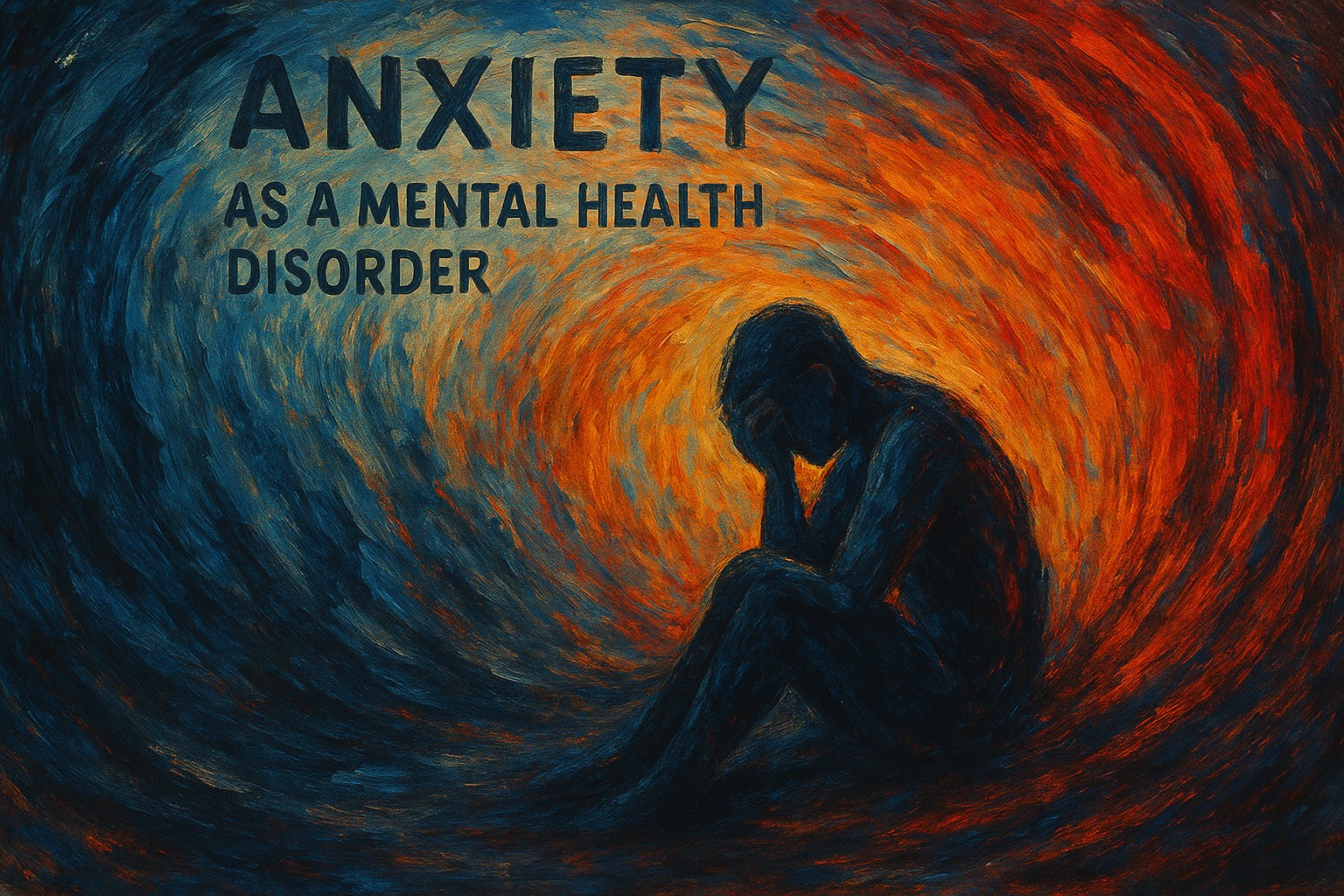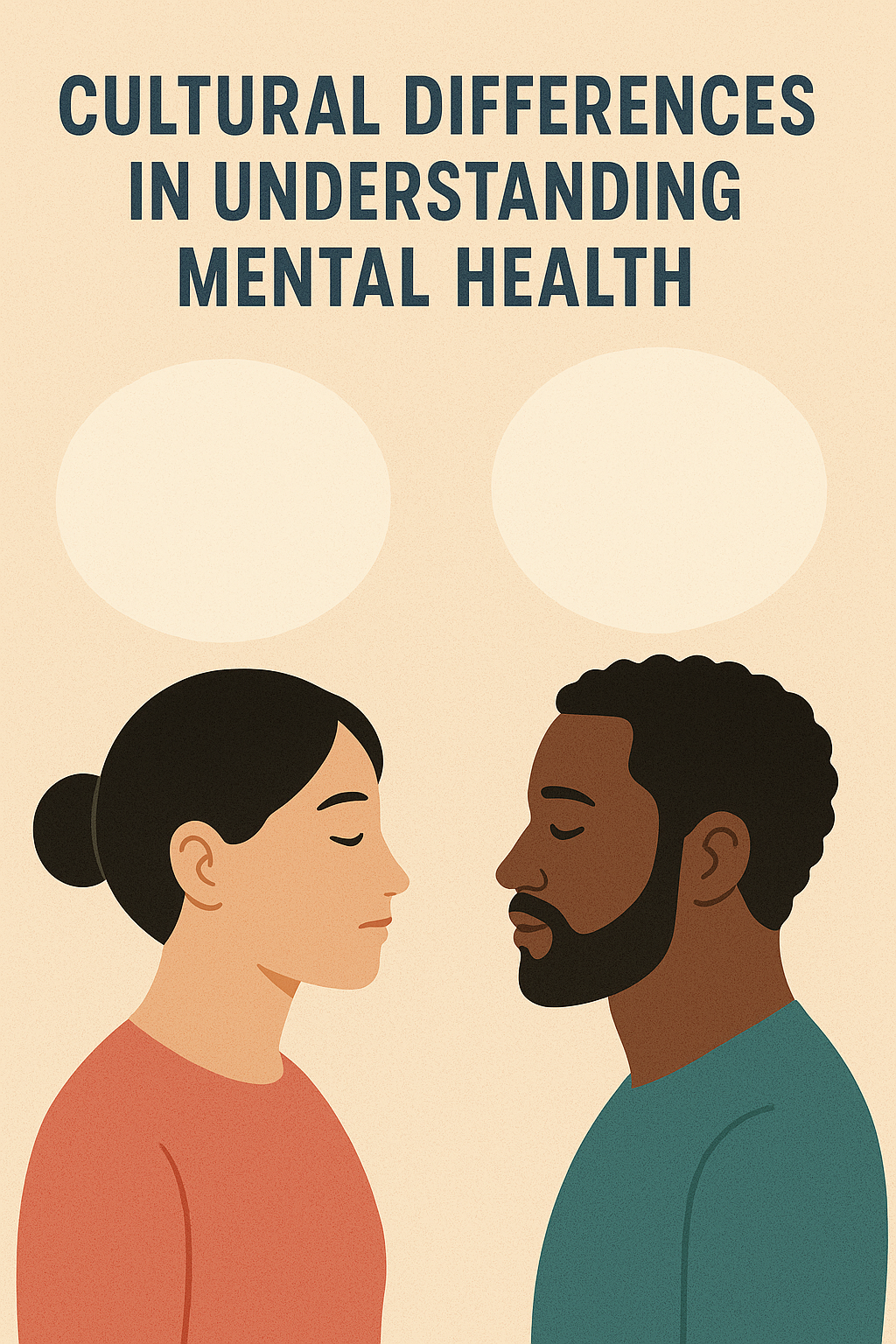In today’s high-pressure world, feeling anxious from time to time is normal. But when that feeling becomes constant, overwhelming, and interferes with daily life, it may be something more serious: an anxiety disorder.
Anxiety is one of the most common mental health conditions globally, affecting millions of people across all ages and backgrounds. Yet many still struggle in silence, unsure of what they’re experiencing or afraid to speak up.
Let's take a closer look at what anxiety is, how it shows up and how it can be managed.
What is Anxiety?
Anxiety is a natural stress response. It’s that uneasy feeling you get before a job interview, a public speech, or an important test. In small doses, anxiety can help us stay alert and focused.
But for people with an anxiety disorder, these feelings don’t go away. They may occur without any clear reason and can become so intense that they interfere with everyday life.
There are several types of anxiety disorders, including;
- Generalized Anxiety Disorder (GAD) – excessive worry about everyday things.
- Panic Disorder – sudden, intense episodes of fear (panic attacks).
- Social Anxiety Disorder – intense fear of social situations.
- Specific Phobias – irrational fear of certain objects or situations.
- Separation Anxiety – fear of being away from loved ones, more common in children.
Common Symptoms of Anxiety.
Anxiety can affect both the body and the mind. Common symptoms include:
Physical Symptoms.
- Racing Heart
- Shaking
- Sweating
- Shortness of breath
- Muscle Tension
- Nausea or dizziness
Emotional and Cognitive Symptoms.
- Constant worry or fear
- Trouble concentrating
- Restlessness or irritability
- Feeling on edge or easily startled
- Fear of losing control or impending doom.
It’s important to remember that everyone experiences anxiety differently. Some may feel it mostly in their body, while others may struggle more with racing thoughts and fear.
What Causes Anxiety?
Anxiety disorders often result from a combination of factors:
- Genetics – a family history of anxiety can increase risk.
- Brain chemistry – imbalances in neurotransmitters like serotonin or dopamine.
- Life experiences – trauma, abuse, or long-term stress can trigger anxiety.
- Personality – some people are naturally more sensitive or prone to worry.
- Health conditions – chronic illnesses or substance use can also contribute.
How can Anxiety Be Managed?
The good news is that anxiety disorders are treatable, and many people learn to manage their symptoms effectively.
Therapy.
- Cognitive Behavioral Therapy (CBT) is one of the most effective treatments.
- Therapy helps individuals understand their thought patterns and develop healthier responses to stress.
Medication.
- Anti-anxiety medications or antidepressants may be prescribed to help regulate brain chemistry.
Lifestyle Changes.
- Regular exercise.
- Mindfulness and meditation.
- Reducing caffeine and alcohol.
- Healthy sleep habits.
Support Systems.
- Talking to friends or family.
- Joining a support group.
- Speaking openly with a mental health professional.
Let's Talk About It.
One of the biggest challenges for those with anxiety is the stigma. Many are told to “just relax” or “stop overthinking,” which only makes things worse. Anxiety is not a choice and not a weakness, it’s a medical condition that deserves care and compassion.
By opening up conversations about mental health, we help others feel seen, heard, and less alone.
Final Thoughts.
Anxiety may be common, but it’s also very real. If you're struggling with overwhelming worry, panic, or fear, know that help is available, and recovery is possible. You are not alone in what you're feeling.
Let’s continue to normalize talking about mental health and support ourselves and those around us in seeking peace, clarity, and healing.




